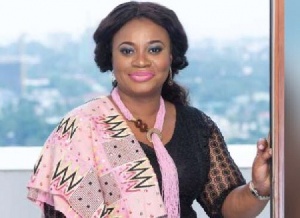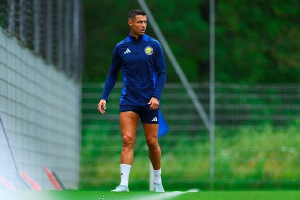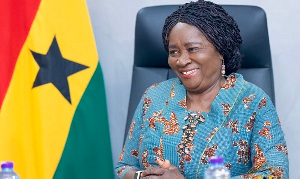By Kofi Amenyo
Elections are messy affairs everywhere. In third world countries, they are even more so. In Ghana, the role of the Electoral Commissioner is very important. Her actions and inactions can directly influence the outcomes of major elections especially when the call is a close one.
The reason is simple: we do not have strong institutions that will make the role of the Electoral Commissioner a purely supervisory one.
For instance, if we can conduct accurate population censuses and make correct projections of our population at each moment of time, we will not be at a loss to know who is a Ghanaian and who is not or who is an eligible voter and who is not. If we kept accurate records at all levels of our society, we would not even need to conduct any registration of voters prior to any elections.
But, alas, we cannot do that. That is why the role of the Electoral Commissioner has become so important. The question can still be asked: in trying to correct for our inherent shortcomings, has the constitution not given too much powers to the Electoral Commissioner?
Article 43 of the 1992 Constitution provides for an Electoral Commission made up of seven members – a chairman, two deputy chairmen and four other members. Only persons who are qualified to be members of parliament can also be members of the Electoral Commission. Not only are all members of the commission appointed by the President under Article 70, the president also determines the power relations within the commission. The president says who the Chairman is and who the deputies and ordinary members shall be.
There is a clear pecking order where the chairman of the commission is the undisputed boss and the other members are his underlings. This is also shown in their terms and conditions of service. The chair has the same conditions of service as a Justice of the Court of Appeal whereas those of the two deputy chairmen are equivalent to a Justice of the High Court. The terms of services of the four ordinary members are lower down the scale and at the mercy of Parliament.
The commission has enormous powers in the exercise of which it “shall not be subject to the direction or control of any person or authority” (Article 46). Even though the constitution provides guidelines as to how the elections shall be conducted, the powers accruing to the Electoral Commission within these guidelines are immense. At the apex of these powers is the Chairman of the commission – the supreme commander.
Given that the other state institutions that the Commission may depend on are weak and dysfunctional, and given our near-schizoid respect for authority figures, the de facto powers of the Chairman of the Electoral Commission are far greater than is suggested by the provisions of the constitution. She can bully everybody in sight.
This is a recipe for disaster. Our general elections can only be as good as the Chairman of the Electoral Commission wants it to be. He must have divine powers to ensure near perfect elections. Where the outcome of a national vote is one in which one candidate wins by an overwhelming difference, we can be sure, even if we do not believe the exact figures, that the winner really did win. But where the tally is close, you can be sure that not even the Chairman of the Electoral Commission can be cocksure of who the winner is.
This was the situation in our last two general elections. It is likely to be so in the forthcoming one too. I submit that even Mr Afari-Gyan, the former Chair of the Electoral Commission, did not know for sure who really won the last presidential elections he supervised. It was so close that he didn’t know!
Another area where the arbitrary powers of the Chair of the EC come into play is seen in the provision that the winner is the candidate getting 50% plus 1 of the votes. This is just a theoretical formulation since such exactitude is practically impossible to achieve especially with all our inefficiencies. Can anyone imagine a second round election which is so close that, of ten million votes cast, a single ballot decides the winner? And who says the EC Chair cannot decide, on his own whims, which ballot paper that is?
The arbitrary nature of the power of the EC Chair can also be seen in the recent mass disqualification of candidates. I suspect the same mistakes that led to their disqualification were made during the Afari-Gyana era but he chose to handle the issue in a different way. It does also look very suspicious that only the two major parties were judged to have done the correct thing. Was the EC chair afraid of daring the big boys? After all, all the parties are made up of Ghanaians with our usual predilection for cutting corners.
The constitution does not spell out the academic qualifications members of the Electoral Commission bring to their jobs. Their conditions of service are equivalent to those pertaining in the upper echelons of the judiciary. This may suggest that people with legal training may be best suited for the job. It is not so. Mr Afari-Gyan was a lecturer in Political Science. If you ask me, I think the post is best occupied by a good administrator with training in Statistics. The other members of the commission can have complementary qualifications including legal expertise.
Even the USA, the richest and most technologically advanced country in the world, is not able to determine the exact outcomes of its elections. Did Bush really win the 2001 elections? Did Trump win fairly?
It will be too much to expect us to do better than the USA, not to talk of the Scandinavian countries that never conduct population censuses or register voters because all such vital statistics are already correctly known to the relevant authorities at every minute, nay, every second, of the day! But we can start by taking the power to appoint members of the EC from the President and investing such powers in an independent body. The other solutions will come naturally, even if slowly, as our other institutions become stronger and bring about the reduction in the arbitrary powers of the Chairman of the Electoral commission.
If our system is strong and trustworthy, it won’t matter who occupies the important chair of the Electoral Commission. As it is now, Mrs Charlotte Osei will determine who wins a close vote. Are we going to remember her in a positive way other than just for her pretty face? Only time will tell.
Btw: the constitution does not really use the term “Electoral Commissioner” choosing the rather colourless term “Chairman of the Electoral Commission”. But the fact that Ghanaians call the occupier of the position Electoral Commissioner only emphasises the enormous powers of the position. Gentle reader, do you know the names of the Electoral Commissioners, or their equivalents, in the USA or the UK? What about those of Denmark or the Netherlands?
Writer's e-mail: kofi.amenyo@yahoo.com
Opinions of Thursday, 1 December 2016
Columnist: Amenyo, Kofi















